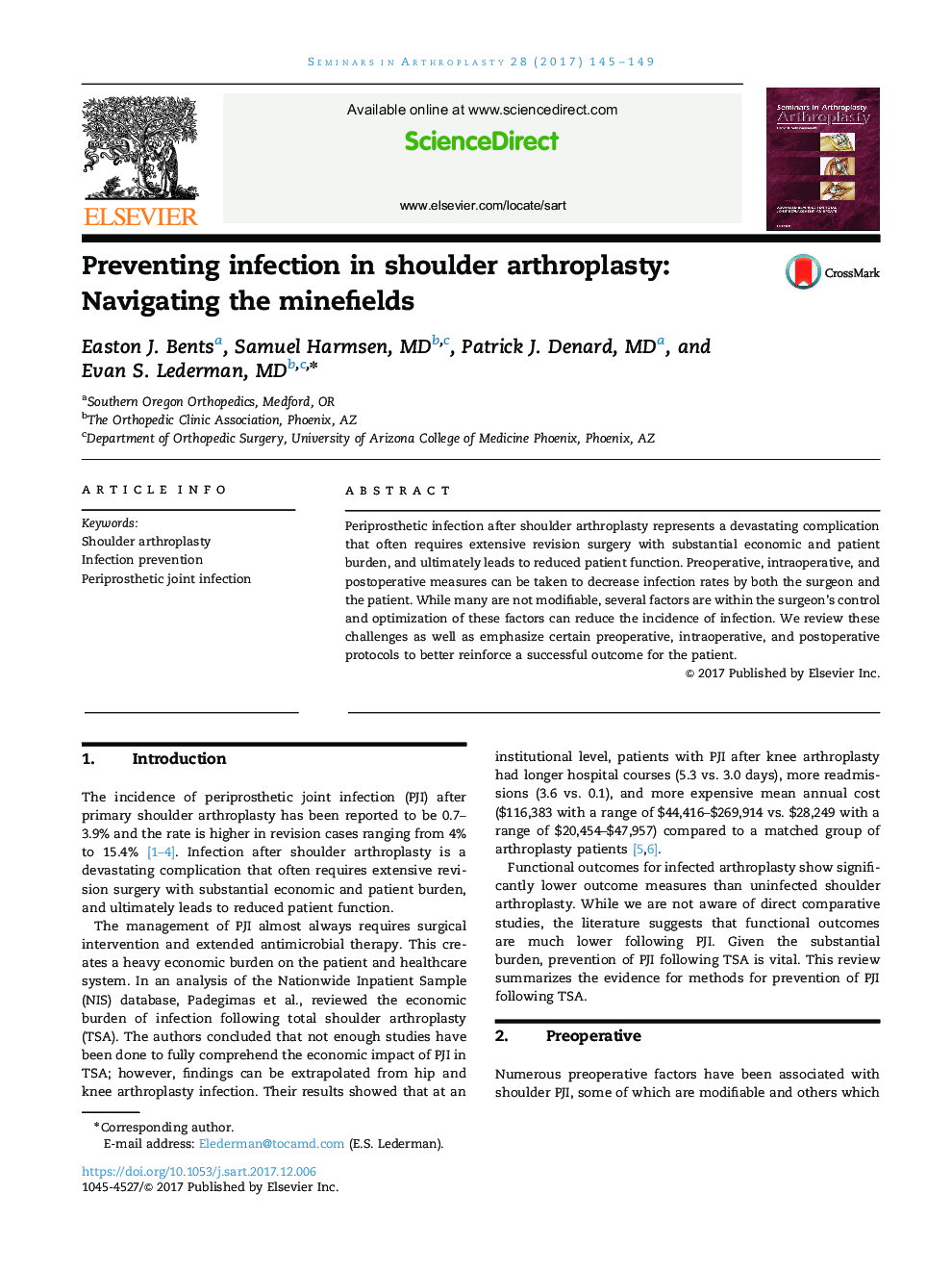| Article ID | Journal | Published Year | Pages | File Type |
|---|---|---|---|---|
| 8804082 | Seminars in Arthroplasty | 2017 | 5 Pages |
Abstract
Periprosthetic infection after shoulder arthroplasty represents a devastating complication that often requires extensive revision surgery with substantial economic and patient burden, and ultimately leads to reduced patient function. Preoperative, intraoperative, and postoperative measures can be taken to decrease infection rates by both the surgeon and the patient. While many are not modifiable, several factors are within the surgeon's control and optimization of these factors can reduce the incidence of infection. We review these challenges as well as emphasize certain preoperative, intraoperative, and postoperative protocols to better reinforce a successful outcome for the patient.
Related Topics
Health Sciences
Medicine and Dentistry
Orthopedics, Sports Medicine and Rehabilitation
Authors
Easton J. Bents, Samuel MD, Patrick J. MD, Evan S. MD,
